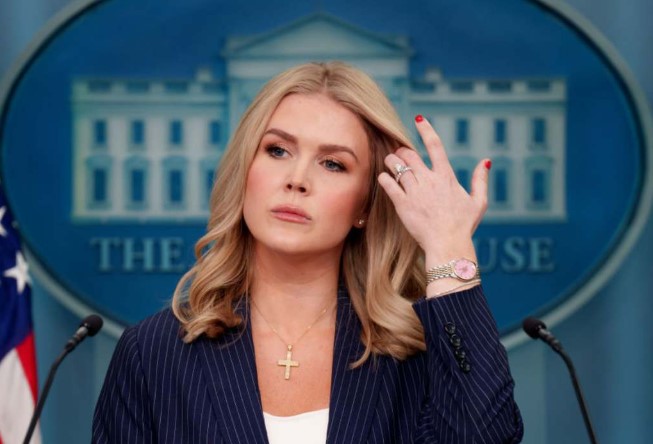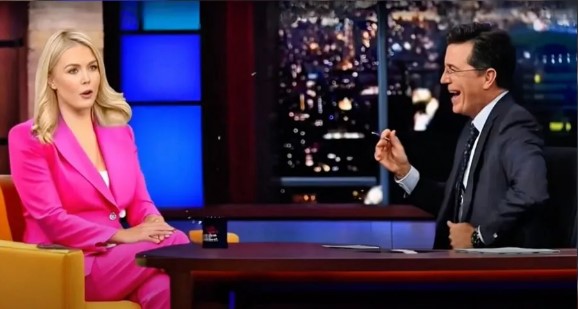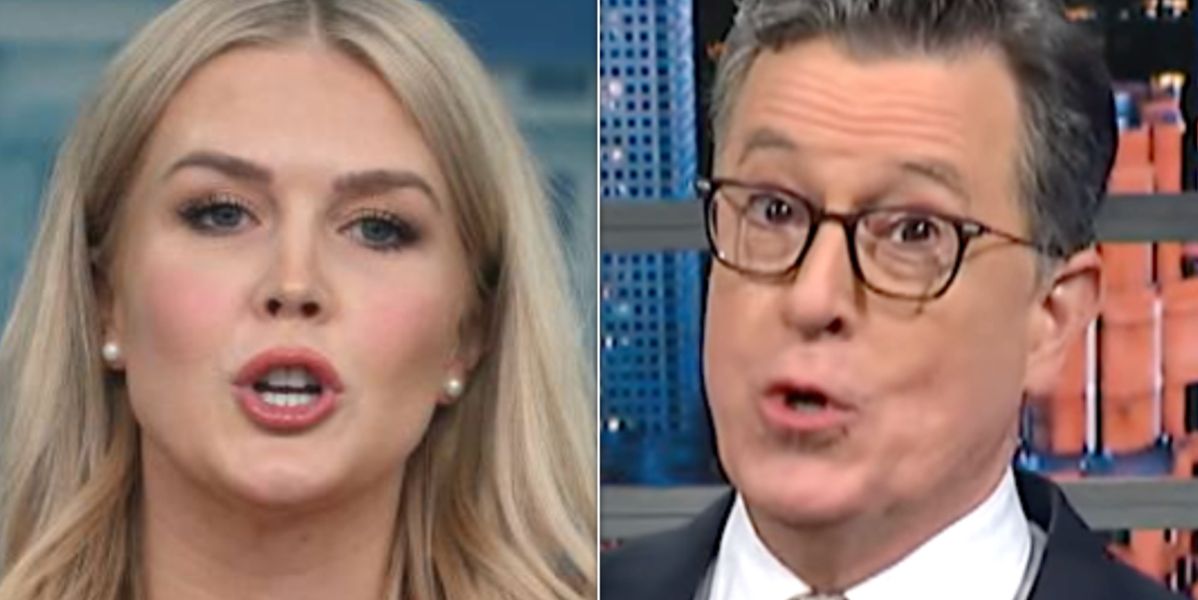In a stunning live television confrontation, late night host Stephen Colbert unleashed a scathing critique of Donald Trump and his communications director, Karoline Leavitt, igniting a firestorm of political outrage and entertainment. What began as a comedic segment quickly morphed into a viral takedown that has left the political landscape buzzing.
 Colbert’s sharp commentary dissected Trump’s bizarre remarks about “big, beautiful, firm paper,” which he used as a metaphor for his inflated ego. The audience erupted with laughter, but the underlying message was clear: Trump’s leadership, often characterized by theatricality, has turned into a national punchline. As Colbert pointed out, the former president’s obsession with image over substance has serious implications for American governance.
Colbert’s sharp commentary dissected Trump’s bizarre remarks about “big, beautiful, firm paper,” which he used as a metaphor for his inflated ego. The audience erupted with laughter, but the underlying message was clear: Trump’s leadership, often characterized by theatricality, has turned into a national punchline. As Colbert pointed out, the former president’s obsession with image over substance has serious implications for American governance.

Not one to back down, Leavitt fired back within hours, branding Colbert a “biased entertainer hiding behind comedy.” Her furious response, delivered in a fiery Fox News interview, accused Colbert of mocking hardworking Americans and fueling division. This immediate backlash has polarized public opinion, with Trump loyalists rallying to defend Leavitt while critics hailed Colbert’s satire as necessary accountability.

The confrontation has reignited a national debate about the intersection of comedy and politics. Colbert’s segment not only entertained but also served as a critique of Trump’s administration, which has been accused of prioritizing performance over policy. Political insiders suggest that Leavitt’s angry defense was less about Colbert’s jokes and more about protecting the brand of Trumpism itself—a mix of defiance and dominance.

As the dust settles, the implications of this clash extend beyond mere entertainment. With millions tuning in nightly, Colbert’s platform wields significant influence, shaping public perception through humor. This latest feud underscores a troubling reality: American politics has become a battleground where every joke can spark outrage, and each angry rebuttal is part of a larger narrative about truth and performance.
The stakes are high as the nation grapples with the consequences of this public spectacle. In a world where leaders argue over perception rather than policy, the question remains: who is truly leading, and who is merely performing? As the drama unfolds, one thing is certain this confrontation between Colbert and Leavitt is far from over, and its ramifications will continue to reverberate across the political landscape.





